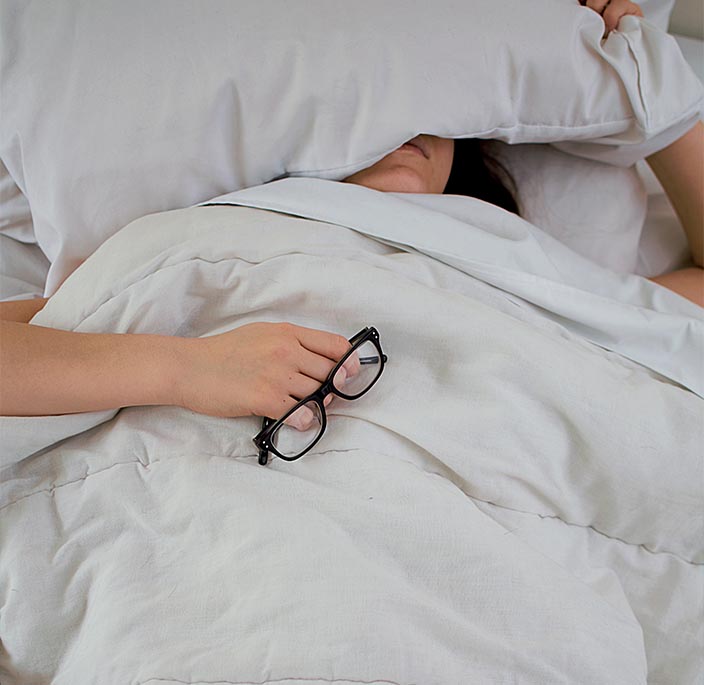Editor
13-Mar-2020
According to Dr. Manvir Bhatia, Director of Neurology and Sleep Centre New Delhi, here’s what you need to change to get back to sleeping well.
Sleep is a complex phenomenon, and even though we spend one-third of our lives sleeping, there’s still very little that we know about it. Since sleep deprivation is one of the most common health concerns, we open up about some common sleep problems with Dr. Manvir Bhatia, Director of Neurology and Sleep Centre, New Delhi, a senior neurologist, electrophysiologist, and a sleep specialist. Here’s what you need to know:

Ideal hours to sleep…
It depends upon the age. A small kid will need 16-18 hours, for a toddler 10-11 hours, teenagers 9 hours, and an adult will require 7-8 hours. If this doesn't happen, you will eventually feel tired. Above 80-85, they actually need less sleep but they feel the need of more, and this where the problem arises.
Power Naps…
There are two things about the nap- the timing and the duration. Anytime between two-three is alright, and duration should lie around 30-40 minutes, or else, night's sleep becomes fragmented and disturbed.
On Insomnia…
Insomnia, according to us, has a lot of definitions about what it is and its impact. But, people are all talking about how their sleep is not good. For poor sleep, the reason usually comes from our lifestyle, there are underlying mood issues, anxiety, depression, and a lot of other causes. If you are having poor sleep and despite some basic measures the problem still persists, then it is time to meet a specialist.
Perfect time to meet a sleep specialist…
After trying everything that you can, the problem still exists that it starts affecting your day, night, mood, affecting your memory, or headaches, please meet a specialist. People often start taking sleeping pills randomly, and it causes addiction, dependency, and eventually, they will lose their efficacy. Basically, if there is a sleep issue, we should find the cause and treat the cause, not just the symptom.
Golden Advice from Dr Manvir…

First and the foremost thing is that you should always keep a fixed time for bed and to wake up. We have an internal body clock, and if you fluctuate that timing and clock, it gets confused. To have a good night's sleep, there are certain activities you should focus on throughout the day. The whole motive is to keep a track on your daily routine, quality, and quantity of food, your habits, etc.
In the morning
During the day, try to get some exposure to natural light. And the other thing is, to keep a track on your caffeine intake. Most of it should be all before noon. Even tea should be consumed just once or twice and nothing post four or five in the evening.
During the day
Some activity during the day is necessary because your body needs to be physically tired. So regular exercise is important. When it comes to smoking and consuming alcohol, nicotine interferes with sleep and so does alcohol. Alcohol intake should be low and the time gap between drinking and going to bed has to be at least one and a half hours to two.
In the night

All your electronic gadgets should be off at least 45 minutes or one hour before bedtime, and you can either read, listen to music, or do anything that calms you. But nothing related to work or something which causes you stress as it gets the brain activated. For dinner, eat something light at least one and a half to two hours before.